Healthcare is the main cornerstone of public good and universal well-being. A healthier society is much more productive, the country is much stronger
The Georgian healthcare system has been through various changes since the country gained independence. The healthcare sector is one of the most important domains that determines the well-being of society, and it is correlated with the overall advancement of the country.
“Health is an inseparable human right, therefore, healthcare is the main cornerstone of public good and universal well-being. In addition, a healthier society is much more productive, the country is much stronger,” Beka Natsvlishvili, Former Member of Parliament, told GEORGIA TODAY in an exclusive interview.
We sat down with him to find out more, particularly to learn why is it important that the health sector is accessible, affordable, and high quality, and what makes this field different from other commercial activities.
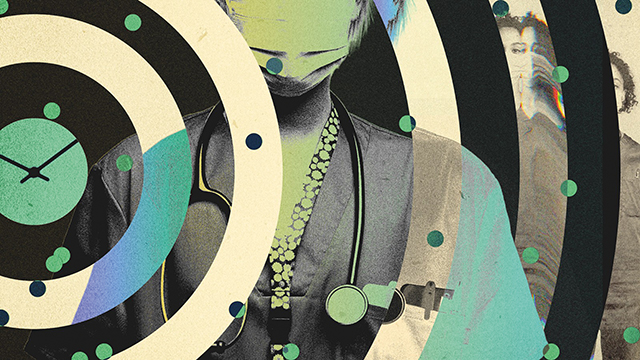
How would you estimate the current Georgian healthcare system? What are its shortcomings?
To make certain assessments and be clearer, it is often better to compare one system or one epoch with another. After the collapse of the Soviet Union, we adopted an entirely new social order based on a market economy and, consequently, saw a reduction in the role and responsibility of the state at the expense of increasing individual responsibility. These changes affected not only individual economic activities but also the social determinants that define human health. Decent housing, employment, and decent working conditions, education, and quality of food are just a few of the social factors that determine human health. Where earlier the state took responsibility for all this, now it has become an individual concern of each person, if they have the material capacity to provide it. I am not trying to idealize the Soviet social order, but all the data demonstrates that the quality of life has declined since then. For example, the morbidity rate increased 2.33 times between 1988 and 1990. This is not due to a better accounting system or an improvement in referrals based on increased access to healthcare, but rather to a deterioration of social determinants and a change in the orientation of the healthcare system.
Willingly or unwillingly, today’s social system directly produces morbidity, while a commercialized, profit-oriented healthcare system benefits from an increasing number of patients. Nowadays, healthcare is a business. The system is designed to increase profits. Consequently, if we compare two different epochs or systems, the Soviet social and healthcare systems were focused on prevention, which meant the responsibility of the state for the social health determinants and the early identification of disease in order to prevent chronic illness, while the main principle of a commercialized, market-based healthcare system we have today is financial gain, which is then served by the whole system. In other words, the different goals and interests of different systems drive these different outcomes. This is evidenced by the mortality rate. In 1980-90, Georgia fluctuated between the 80th and 90th positions in terms of mortality, and today it fluctuates between the 190-200th positions. The only indicator that is slightly improved is life expectancy, which is mainly the result of technological and scientific advances in medicine worldwide and not the proper functioning of the healthcare system.
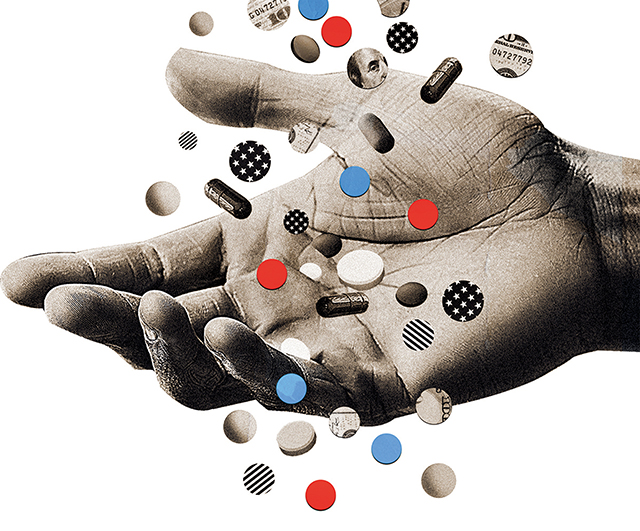
What changes has the healthcare system undergone since Georgia gained independence?
Before talking directly about the changes, we must bear in mind that the collapse of the Soviet Union was a true humanitarian catastrophe for the post-Soviet countries. Gross domestic product per capita fell by 40%, a much higher rate than it did during the Great Depression in the United States. It should be noted that the GDP per capita in Georgia has not yet reached the 1989 figure and lags by 10-15%, which led to mass unemployment, poverty, and inequality. The functioning of the healthcare system and healthcare reform were also affected by this reality. And we should not forget that the first budget of independent Georgia was approved in 1995 and the Constitution was adopted the same year. Not to mention the three civil wars that took place in Georgia since. Clearly, this situation did not leave much space and opportunities for the proper functioning of the healthcare system.
The economic disadvantages were directly reflected in the lack of resources and the social status of the staff working in the healthcare system. The disruption of trade relations between the former republics led to a significant reduction in the provision of basic medical supplies. The material and technical base was also depreciated. Where in 1990, per capita, healthcare got $13 from the budget, in 1994 the figure was $1. Citizens paid almost 90% of their healthcare expenses out of their own pockets, if they could even afford it. The then Georgian government began to focus on healthcare reform in the early 1990s. Their goal was to optimize costs and maintain a basic standard of healthcare with limited resources. To achieve this goal, there were immediate considerations for reducing the number of healthcare facilities and, most importantly, for privatizing healthcare infrastructure- this was not so much dictated by economic conditions, as a kind of echo of the urge for shock therapy.
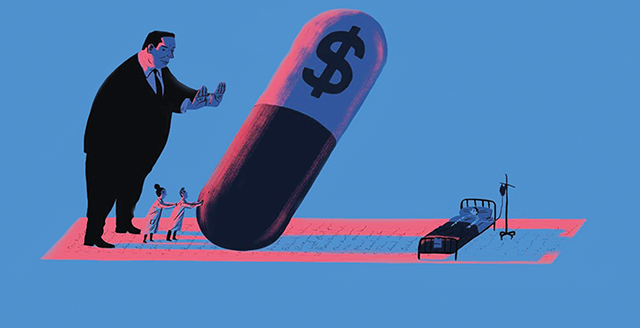
Health is conditioned not only by the proper work of healthcare institutions, but also by many social determinants, whose universal provision can only be provided by the state and are its responsibility
International financial institutions, advisors, including in particular the IMF and the World Bank, have played a major role in both the healthcare system reorganization and the reform process as a whole. The “shock therapy” was a combination of reforms that required a rapid transition from a Soviet-command economy to a market economy. It included rapid and mass privatization, price liberalization, and optimization of government spending. It is difficult to say whether these reforms were based on a purely economic situation or if they were driven by ideological factors.
As a result, the healthcare system was decentralized. Not massively, but still, the first private medical institutions emerged. The country moved from direct budget funding for healthcare to contribution-based funding. The State Health Fund was established. Yet, due to high unemployment and informal employment rates, it was still not possible to raise the necessary funds for the functioning of the new healthcare system. Where before 2003 there was a less ideological component in the healthcare reform, after 2003, the new government, in terms of commercialization and privatization of healthcare, can be said to have conquered the unprecedented and reached a new peak in the world. The market was no longer a means of creating and distributing resources, but an end in itself. All fields were deregulated, almost all pre-existing facilities, including healthcare, were subject to privatization, that before were in the hands of the state. If before only pharmaceutical facilities and dental clinics were fully privatized, now the clinics and hospitals that remained in state ownership in various forms completely passed into the hands of private owners. Health insurance had to be financed by private insurance companies.
In accordance with the firm principles of market fundamentalism, there was a belief that the market provided both quality and cost optimization. A large part of the population left out of state programs found themselves completely vulnerable. As a result of the deregulation, one company was entitled to own the clinic, the insurance company, and the pharmaceutical network. As a result, there was no quality control and no reduction in costs, both in terms of payment from the state and from the pockets of citizens.
In 2012, after the change of government, the universal healthcare reform was carried out to alleviate the situation many people found themselves living in. First, the state program was extended to all social groups; second, the state health budget was significantly increased. Before 2013, the out-of-pocket rate for healthcare costs ranged from 60-70%. Now, it ranges from 40-50% due to increased state funding.
Despite these changes, the goal of cost optimization and quality assurance remained unattainable. In parallel with budget increases, as expenditures could not be optimized, in 2017, the universal nature of state funding changed. Public health expenditures were distributed according to income groups. The Achilles’ heel is still medication funding, which accounts for 70% of the amount paid out of the patient’s pocket.
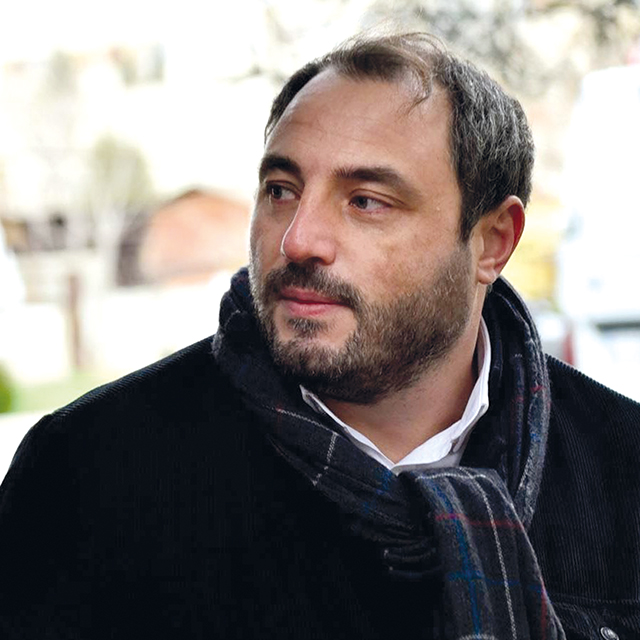
What part of the healthcare sector is privatized and what kind of problems does privatization create?
Today, about 85% of clinics and 95% of beds are privately owned. But the problem is not only the unprecedented rate of privatization but also the degree of deregulation in both the medical and pharmaceutical sectors. This is also the reason for the modest results of the universal healthcare reform.
In Georgia, for some reason, the analysis of the healthcare system focuses more on funding models than on the ownership of healthcare facilities. But if the institution is private, its purpose, obviously, is to increase and secure profits.
Especially in the field of healthcare, in the absence of regulations and standards, such a system becomes more vicious. It becomes a pitcher that cannot be filled. In such a system, first, because the state will still pay, the clinic is interested in resorting to medical manipulations that may not be necessary at all but may be expensive, which increases its profitability.
Second, because there are no standards and the state still pays, there are plenty of both staffed and technically poorly equipped clinics trying to get involved in this uncontrollably lucrative business. In the face of increased competition, based on market principles, treatment costs should be reduced. But the opposite happens. Because the number of patients is already being distributed across many different clinics, existing clinics are trying to compensate for the loss of profit caused by the reduced number of patients by raising prices, or at the expense of unnecessarily more expensive medical manipulations.
Third, especially in the regions, due to the small population and lack of ability to pay, private companies are less motivated to fully maintain their equipped facilities. This in turn severely affects the patient’s access to the necessary care. Of course, the list goes on and on.
Finally, because there is not much profit in preventive medicine, private companies are less interested in entering this system, which further distances us from the foundation of the healthcare system, which is called prevention. Or, if they are represented, only large medical companies, such as Evex, will soon become monopolists in this field.
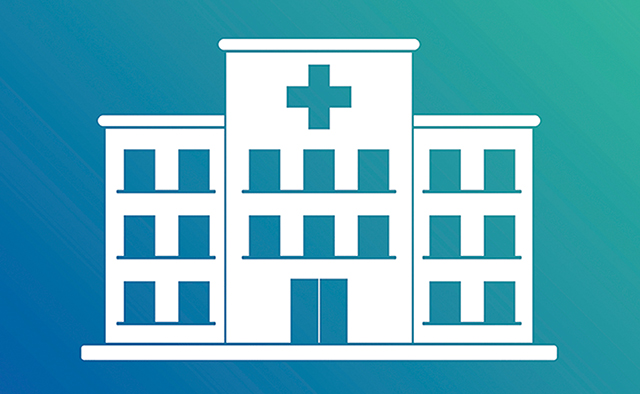
Should the state have a large stake in the healthcare sector?
Obviously, both in terms of funding and ownership of clinics. This would significantly reduce the overall cost of healthcare and ensure standards. It would have both a price and a standard-setting function, requiring the existence of and adherence to standards. For example, due to the lack of standards, the remuneration and working conditions of most nurses and doctors are very low, which negatively affects the patient. There are about 15 patients per nurse, which is an incredible amount for full-fledged care.
Now as for the costs: since a state clinic does not have and will not have a motivation for profit, obviously, it will not be interested in performing expensive, unnecessary medical manipulations on the patient, which would reduce the costs of healthcare. And a state health insurance system based on the principle of solidarity ensures treatment for everyone equally, regardless of the patient’s social status. The competition-based private insurance system creates the same problem that the multiplicity of clinics has caused in the hospital sector: Competition to attract patients increases marketing and administrative costs, which in turn is reflected in an increase in the price of a patient’s insurance premium.
Why should healthcare be accessible to all, and what role should the state play in relation to the health of the citizen?
Until the Middle Ages, it was believed that illness was an individual characteristic of Man, his destiny. The poor got sicker, and poverty was a kind of sentence. A lot has changed since then. The treatment of the poor was subject to charity based on religious beliefs. After the Industrial Revolution, as capitalization realized it needed a healthy workforce for its smooth production, it agreed that the state should take responsibility for healthcare for the poor.
The recognition of human life as a universal and supreme right in the 20th century has led to the recognition of access to healthcare as an inalienable human right. Mankind has realized that being sick is not an individual problem or fate of a person, but a condition caused by living conditions, which is directly related to their full existence and life in general. Therefore, as I mentioned above, health is conditioned not only by the proper work of healthcare institutions but also by many social determinants, whose universal provision can only be provided by the state and is its responsibility. Otherwise, a healthy life is a luxury for mere units; for those who have the material capacity. Decent housing, decent labor standards and payment, nutrition, especially at an early age, and a healthy environment are just as important for health as any medical preparation. This is also a form of disease prevention. Therefore, in a market economy, ensuring this standard for everyone without the state is impossible. Simply put, health is not furniture, such as a table, which if you like and can afford, you would buy or not buy. It is a human right that is an integral part of the right to life. That is why it should be taken care of by the state.
How is the healthcare industry different from other commercial activities?
I will name two main characteristics. First, healthcare is characterized by so-called information asymmetry, i.e., the patient does not know what treatment they need, relying on the good faith of the doctor. For example, when we buy food, we know its taste and properties, so it is difficult to deceive us. In healthcare, we do not have this information, only a doctor does. This, in turn, can lead to overspending and deception in order to make a profit. This is why it is not so much profit in healthcare as a rule, but other more ethical factors that determine motivation and activity, unlike other activities.
Second, for example, while I can at least determine when I need a product and when to calculate the cost of purchasing it, I cannot determine with which disease I might get ill. Therefore, I cannot determine either the time of generation of the cost or its volume, unlike in other commercial relationships. Because treatment is expensive and involves unforeseen costs, collective responsibility systems are in place to provide healthcare to prevent sudden impoverishment or insolvency.
Why is universal healthcare important and what is the result?
As I have already mentioned, health is an inseparable human right; therefore, healthcare is the main cornerstone of public good and universal well-being. In addition, a healthier society is much more productive, the country is much stronger. I do not like the concept of human capital, which turns a person into a single product, a market commodity, which always needs refinement in order to sell better in the market. But what one can do, since this concept has been so established, is to ensure health is a necessary precondition. Without health, people face many obstacles on the way to the full realization of themselves.
What model of healthcare system is most acceptable to you?
The important thing to realize is that healthcare is not a market commodity whose accessibility should depend on our material condition. It should be taken care of by the state. The main feature of the existing commercialized healthcare model is clearly expressed in both terms and titles. Today, treatment is called service delivery, the doctor is called the service provider, and the patient is called the customer.
After the introduction of universal healthcare, the situation seemed to have partially improved, but this became possible only on the basis of a jump in budget. With the state spending on health in terms of GDP, we are already lagging behind not only the European average but even that of our immediate neighbors. Therefore, the budget should be increased, but it should be spent wisely.
The main focus should be on strengthening and promoting preventive medicine and the outpatient sector, otherwise, we will not be able to cover the healthcare costs. Regional multifunctional state clinics should be established, or at best, should be redeemed from their private owners by the state. Standards should be set for both the working conditions of medical staff and the licensing of clinics.
The prices of medicines should be reduced, which is more feasible on the basis of consolidated procurement by the state than by imposing marginal prices. The recommendation of generics and substitute medicines by physicians should be encouraged, and local production should be stimulated as far as possible. A state health fund should be established to provide health financing on the basis of solidarity of state funding and social contributions. This is a list of measures that will rationalize costs and ensure quality.
The Covid-19 pandemic has clearly exposed the shortcomings of our healthcare system. Were it not for the dedication of doctors and nurses, the situation would have been even worse. Clearly, this degree of privatization of clinics has hampered coordination between the public and private sectors and the adaptation of the system to the Covid-19 emergency. The state often found itself powerless against private clinics. Due to a large number of clinics, the existing patient capacity is quite large, but due to the lack of standards and regulations, they could not be fully utilized. In general, due to the lack of trust in the healthcare system, the vaccination process could not be fully successful.
Tell us about your research related to the healthcare system. What is the purpose of this research, and what were the results?
We are conducting research within the framework of the Institute for Fair Economics, commissioned by the Friedrich Ebert Foundation. The research is more politico-economic. The main question we want to answer is who has benefited from the privatization of the healthcare system in Georgia? To what extent have privatization reforms in this area had an impact on patient satisfaction?
Privatization of healthcare in other countries has had a major impact on the perception of their own work by doctors. Many studies show that some doctors equate their work with commercial activities. Therefore, an important question that we also want to answer is how doctors perceive their work in Georgia. This study well illustrates the ideological framework that has driven healthcare system reforms since independence after the collapse of the Soviet Union. Accordingly, both qualitative and quantitative analyses cover 30-year dynamics. The research will be useful both for policy makers and for healthcare system experts and students interested in healthcare economics and the political economy in general. The final results are scheduled to be published and discussed early next year.
Exclusive interview by Ketevan Skhirtladze














